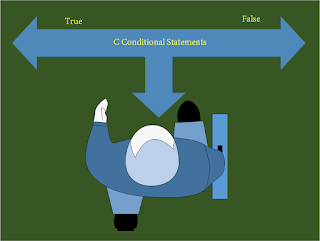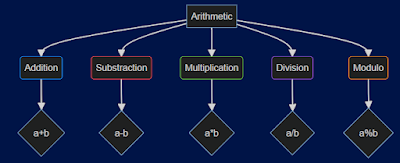Chapter: 1 Programming..? What is it.?
Why We need to know programming:
 |
| Programming |
Programming languages are essential tools for creating software, websites, applications, and various technological solutions. They enable us to give instructions to computers and make them perform specific tasks. Here are some real-world examples of why programming languages are important:
Web Development: Programming languages are used to build websites and web applications.
Mobile Applications: Programming languages are used to develop mobile apps for various platforms.
Data Analysis: Programming is crucial for analyzing and making sense of large data sets.
Internet of Things (IoT): Programming languages are used to control and interact with IoT devices.
Scientific Research: Programming is widely used in scientific research for simulations, data modeling, and analysis.
Game Development: Programming languages are fundamental to creating video games.
Knowing programming can help you in the following ways:
- Problem Solving: Programming teaches you how to break down complex problems into smaller, manageable steps and devise solutions.
- Automation: You can automate repetitive tasks and increase efficiency in your work.
- Career Opportunities: Programming skills are in high demand, and knowing how to code opens up various career paths in technology.
- Creativity and Innovation: Programming empowers you to create new software, tools, and solutions that can have a positive impact on society.
- Collaboration: Programming facilitates collaboration with others in a team to develop software projects.
By learning programming, you gain the ability to create software, automate tasks, solve problems, and contribute to technological advancements in various fields.
How to Learn programming easily and freely:
Learning programming can be easy and fun if you use the right tools and resources. There are many free online tools that can help you learn programming, such as:
- Online code editors: These are tools that allow you to write, run, and test code in your browser, without installing anything on your computer. Some examples of online code editors are:
- Replit: A code editor that supports over 50 programming languages and has a built-in terminal, debugger, and collaboration features.
- CodePen: A code editor that focuses on web development, where you can create and share HTML, CSS, and JavaScript projects.
- Glitch: A code editor that lets you create and host web applications using Node.js, Python, Ruby, and more.
- Online courses: These are courses that teach you programming concepts and skills through videos, articles, quizzes, and projects. Some examples of online courses are:
- W3Schools: A website that offers tutorials and references for web development topics, such as HTML, CSS, JavaScript, PHP, SQL, and more.
- Codecademy: A website that offers interactive courses for various programming languages and technologies, such as Python, Java, C#, React, Django, and more.
- freeCodeCamp: A website that offers self-paced courses for web development and data science topics, such as HTML, CSS, JavaScript, Python, MongoDB, Machine Learning, and more.
- Online communities: These are platforms where you can connect with other programmers, ask questions, get feedback, share your work, and find opportunities. Some examples of online communities are:
- Stack Overflow: A website where you can ask and answer programming-related questions and earn reputation points and badges.
- Dev.to: A website where you can read and write articles about programming topics and join discussions with other developers.
- GitHub: A website where you can host and collaborate on code projects using Git version control system.
These are just some of the free online tools that can help you learn programming easily. There are many more tools and resources available on the internet that you can explore and use according to your needs and preferences.
NOTE: For any of doubts, if you required more information on any of topics please leave comments, will be happy to answer.
Thank you for reading this blog post! To explore more chapters, click the button below:
Master C Programming Index







Very Nice and clean
ReplyDelete